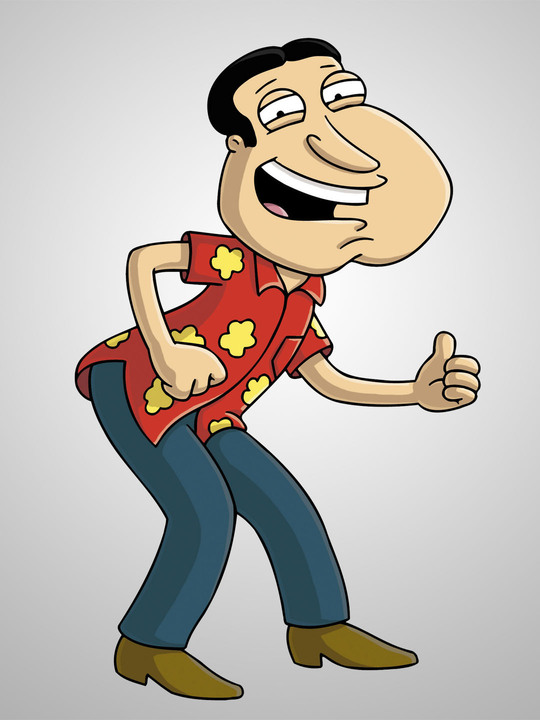
Seth MacFarlane’s sitcom, Family Guy, is a prime example of the actor’s focus on braggadocio and racism rather than genuine laughs.
“Where are those good old-fashioned values?” Peter Griffin inquires in the theme song for Family Guy, Seth MacFarlane’s animated sitcom that transformed from a show centered on gleeful potty humor and the dysfunctional family into something bigger and all-consuming: the unfortunate backbone of American comedy.
With MacFarlane’s recent appalling turn as host of the Oscars this year, along with rumors of him reprising the role next year, it’s time to assess the damage he has caused.
Many people chide MacFarlane for the misogyny and racism he injects into his demeaning, life-sized parrots disguised as wholesome American cartoon characters. I’d argue, instead, that his greatest crime is trivializing comedy itself. He sucks the intellect out of an art form that amalgamates self-deprecation, witty observation and the insecurities associated with understanding people through the lens of culture rather than interpersonal relationships.
If you watch an episode of Family Guy or American Dad! or whatever other shows the MacFarlane empire drafts up, none of those elements are present. If his spirit lingers in every character, then all we can sense is a lazy, cocky, outdated knowledge of the world. Most of the jokes are tossed-off references to obvious pop culture targets. Look, there’s Kim Kardashian. And Mel Gibson. It’s as if MacFarlane’s writing process consists of going to the dentist, picking up a 2-year-old copy of Star Magazine and taking notes on badly behaving celebrities.
Two other animated shows that were a part of the same Fox syndication, King of the Hill and The Simpsons, are wildly different from Family Guy in their ability to capture the sentiment of American suburbia without offending our ability to understand this humor as satire. They don’t criticize their subjects, and they certainly don’t make fun of other people along the way for no reason at all. The comedy here comes from how close these characters’ lives mirror our own, but with one major change: They are filtered gracefully through the cultural lens, not contrived by pop culture on the whole.
Indeed, where are those good old-fashioned values? Not in the tabloids, Seth. Or in your own, self-aggrandizing brain. You’ll find them when you develop an earnest desire to try and make sense of life’s oddities, rather than critique them for existing in the first place.



